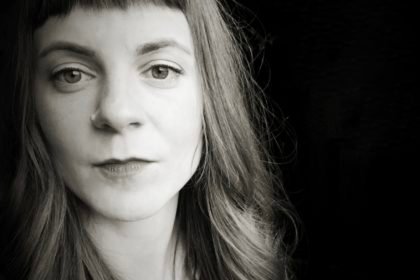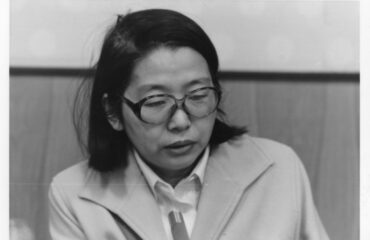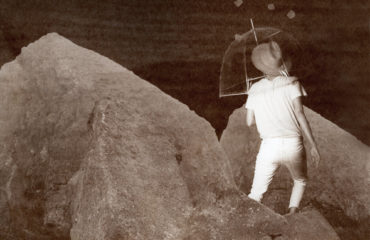INTERVIEW WITH Rosalie Moffett

READ THE POEMS PAIRED WITH THIS INTERVIEW
FWR: In my first read of “In Sound Mind”, I was struck by how you play with sound throughout the poem (such as the lines “Up there, sky-high,/ do you, as you go, know the feeling/ you slough?”). Can you speak about the growth of this poem? How does consonance (and dissonance!) influence your process– if at all?
Rosalie Moffett: I think I’ve been gravitating towards letting sound lead the way during this particular political period, and this pandemic—I’ve been angry, sad and with something overly simple to say stuck in my craw. Which makes a boring poem. A hallway you can see the end of from the beginning. But to let sound in as a guide gives that hallway some doors, some new avenues. There are then things behind doors that I have to shift in order to see. It opens rooms in my thoughts I didn’t know were there. Which certainly happened in this poem.
And (if you forgive me my wandering into some more conjectural territory) back in high school when I was obsessed with the weird experiments conducted in service of psychology and sociology, I remember learning about cognitive dissonance. In one study, participants were asked to either hold a pencil by pursing their lips, or in their teeth, like a rose. Rough approximations of a frown and a grin. They were then told jokes. Those with the pencil in their teeth found the jokes funnier. In short, the brain said “I must think these are funny, I’m smiling.” The brain likes to follow the body’s lead. Out loud, the mouth makes a rough smile in weeviling, feeling, bedeviled. Makes a rough frown when saying I don’t know, No one knows. I say all this not to claim my poems are smart enough to play these sounds like an emotional piano, but to offer that the sound of a poem might be working on our cognition in ways that are deeply layered and complex. I trust it to lead me through a poem.
FWR: There’s sly humor in these poems, particularly in “Nest Egg” with its addresses to Scrooge McDuck, that carves a new path to the emotional heart of each poem. It serves to buttress the associative leaps you make through the poems and expand on the emotional surprise. How do you see humor in your work?
Moffett: Humor is the PPE gear my mind wears, the way I can make something dark harmless enough to look at. There’s that old chestnut: tragedy + time = comedy. Often, when you’re too close to something, you can’t see the humor in it. If you train yourself to see the comedy, it’s like instant distance. (Instadistance™) You can see how humor could serve as a survival tactic, a jetpack out of actually facing something–and I think there’s a danger of that to be aware of in writing poems. But it’s also, I think, a useful way to gain perspective. Make something funny, and you can look down at it as if from a great height. What is also true is that this training (if you’ll let me call it that) makes a 2-way street. You can zoom in and see the tragic in something that, at first, seems funny. Scrooge McDuck? A duck obsessed with something he can’t eat? Swimming in coins? Oh, honey. What have we made.
Some of my zooming-in involves digging into granular and aspects of things populating my poems. Little of my “research” ends up in the poem (and I defy any algorithm to make sense of my internet searches). For this poem, I did a lot of reading about the character of Scrooge McDuck (yes, his was the first depiction of a swimming pool of money) and got to feel kind of close to him, a kinship. At some point in his history, he changed–someone took pity and shifted him from a miser (clinging to what he couldn’t even make use of) into a philanthropist. I wish that same hand would take pity on me.
FWR: I love your last images, whether Jessica kneeling with “anyone’s son” or the plant that neither “blooms nor fruits”. How do you know when you’ve ‘stuck the landing’ in a poem? Are there poems that you admire for their endings?
Moffett: If only, like in gymnastics, one could look up and see the score from judges!
I think what I look for is that feeling that my mind is standing, so to speak, on a new patch of land. A new vantage point. A poem, uniquely, is a negotiation with white space, with absence. Each line and stanza break are little perches from which to consider that absence. And that last line is where the reader stops, as if at the edge of a cliff, to look out. If there’s something still ringing, something hovering in the mind’s eye, demanding attention, OK. Good.
The cliff came up suddenly in Carrie Fountain’s poem “The Jungle” and then there I was, looking over the edge, ringing.







